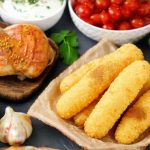Reflux, also known as gastroesophageal reflux disease (GERD), affects millions worldwide, causing uncomfortable symptoms like heartburn, regurgitation, and even difficulty swallowing. Managing this condition often involves dietary adjustments, and for many, that means carefully considering beverage choices. While avoiding common triggers like caffeine, alcohol, and acidic drinks is a good starting point, finding satisfying alternatives can feel restrictive. Many people assume limiting beverages will significantly impact hydration or enjoyment, but it doesn’t have to be the case! There’s a surprisingly wide array of delicious and soothing options available that won’t exacerbate reflux symptoms – in fact, some can even help alleviate them.
The key is understanding why certain beverages worsen reflux. It’s not always about acidity; factors like carbonation, caffeine content, temperature (very hot or very cold), and even the volume of liquid consumed can play a role. For example, carbonated drinks increase pressure in the stomach, potentially forcing acid upwards. Caffeine relaxes the lower esophageal sphincter (LES), allowing stomach acid to escape more easily. Therefore, focusing on beverages that are gentle on the digestive system, non-carbonated, caffeine-free, and at moderate temperatures is crucial for comfortable hydration. This article will explore the best reflux-friendly beverage options, offering practical advice for managing your symptoms while staying well-hydrated and enjoying flavorful drinks.
Soothing Hydration: Water & Herbal Teas
Water remains the gold standard of hydration, and it’s naturally reflux-friendly. However, temperature matters – extremely cold water can sometimes cause discomfort in sensitive individuals. Room temperature or slightly warm water is generally best tolerated. Beyond plain water, herbal teas offer a delightful range of flavors and potential benefits without caffeine. Chamomile tea is well-known for its calming properties and may help reduce inflammation, while ginger tea, in moderation, can aid digestion (though high doses could potentially irritate some). Licorice root tea has also been traditionally used to soothe the digestive tract – but be cautious if you have high blood pressure.
It’s important to choose herbal teas carefully, avoiding those with citrus or mint, as these can sometimes trigger reflux symptoms in susceptible individuals. Peppermint and spearmint, despite being refreshing, are known to relax the LES, increasing the risk of acid reflux. When brewing herbal tea, avoid adding lemon or honey unless you know it doesn’t bother you – even small amounts can sometimes be problematic. Finally, don’t overdo it with the quantity; sipping slowly throughout the day is preferable to gulping down large volumes at once. If your child has digestive sensitivities, reviewing best practices for introducing probiotics can also be helpful.
Milk & Plant-Based Alternatives
Milk can be a bit of a double-edged sword for reflux sufferers. For some, a glass of milk actually neutralizes stomach acid and provides temporary relief. However, for others, the fat content in whole milk can worsen symptoms by slowing down digestion and increasing acid production. Low-fat or skim milk is often better tolerated, but even then, individual reactions vary greatly. Plant-based milks offer a good alternative, with almond milk, oat milk, and coconut milk being popular choices.
Almond milk is generally well-tolerated due to its low acidity, while oat milk has a creamy texture that can be soothing. Coconut milk offers a unique flavor but may cause issues for some due to its higher fat content – again, moderation is key. It’s essential to choose unsweetened varieties of plant-based milks to avoid added sugars, which can contribute to inflammation and digestive discomfort. Consider experimenting with different types to find what works best for your system. Remember that fortified plant-based milks provide important nutrients like calcium and vitamin D. Those dealing with lactose sensitivity may benefit from fermented non-dairy options.
Understanding Trigger Beverages & Alternatives
One of the most common questions from individuals managing reflux is: “What should I absolutely avoid?” Beyond caffeine, citrus juices (orange, grapefruit, lemon), tomato juice, carbonated beverages, alcohol, and very hot drinks are frequently cited as triggers. These exacerbate symptoms by either increasing stomach acidity, relaxing the LES, or creating pressure within the digestive system. When craving a flavorful drink, consider these alternatives:
- Instead of Orange Juice: Try pear juice (diluted with water if needed) or apple juice – both are less acidic.
- Instead of Tomato Juice: Opt for carrot juice or beetroot juice – they offer different nutritional benefits without triggering reflux.
- Instead of Soda: Sparkling water without added flavorings can provide a similar fizzy sensation without the acidity and sugar. Infuse it with cucumber slices or berries for extra flavor.
- Instead of Coffee: Explore herbal tea options like rooibos (naturally caffeine-free) or chicory root “coffee” – which offers a coffee-like taste without the caffeine.
The Role of Temperature & Volume
As mentioned earlier, temperature plays a significant role in reflux management. Extremely hot beverages can irritate the esophagus and worsen heartburn, while very cold drinks may cause spasms in the digestive tract. Aim for room temperature or slightly warm liquids. This applies to all beverages, including water and tea. When it comes to volume, avoid drinking large quantities of liquid at once – instead, sip slowly throughout the day. Gulping down a lot of fluid can put pressure on the LES and increase the risk of reflux episodes. For those with IBS, understanding best vegetables to eat is also important for overall digestive health.
Another factor to consider is how you drink. Avoid lying down immediately after consuming beverages; gravity helps keep stomach acid where it belongs. Give your body at least 2-3 hours to digest before reclining. Also, be mindful of your posture while drinking – sitting upright can help prevent reflux. Proper hydration is crucial for overall health, but it’s important to approach it strategically when managing GERD.
Personalized Reflux Management: Keeping a Beverage Diary
Everyone experiences reflux differently, and what triggers one person may not affect another. Therefore, the most effective way to identify your personal trigger beverages is to keep a detailed beverage diary. For at least two weeks, meticulously record everything you drink, noting the time of day, quantity, and any associated symptoms (heartburn, regurgitation, bloating, etc.).
- Be specific: Don’t just write “tea”; specify the type of tea (chamomile, ginger, etc.) and whether it was brewed strong or weak.
- Track timing: Note how long after consuming a beverage symptoms appear.
- Identify patterns: Look for correlations between specific drinks and reflux episodes.
This diary will help you pinpoint which beverages to avoid and which ones you can enjoy without discomfort. It also provides valuable information if you consult with a healthcare professional about managing your GERD. Remember that dietary adjustments are often just one component of a comprehensive reflux management plan, which may also include lifestyle modifications (like elevating the head of your bed) and medication if needed. If you’re looking for more specific meal plans, consider reviewing a gerd meal plan with no spices or one without tomato or citrus ingredients. And for quick options, explore low-fodmap meal ideas when you’re short on time. Finally, consider what best breakfasts are available for those with chronic issues.

















